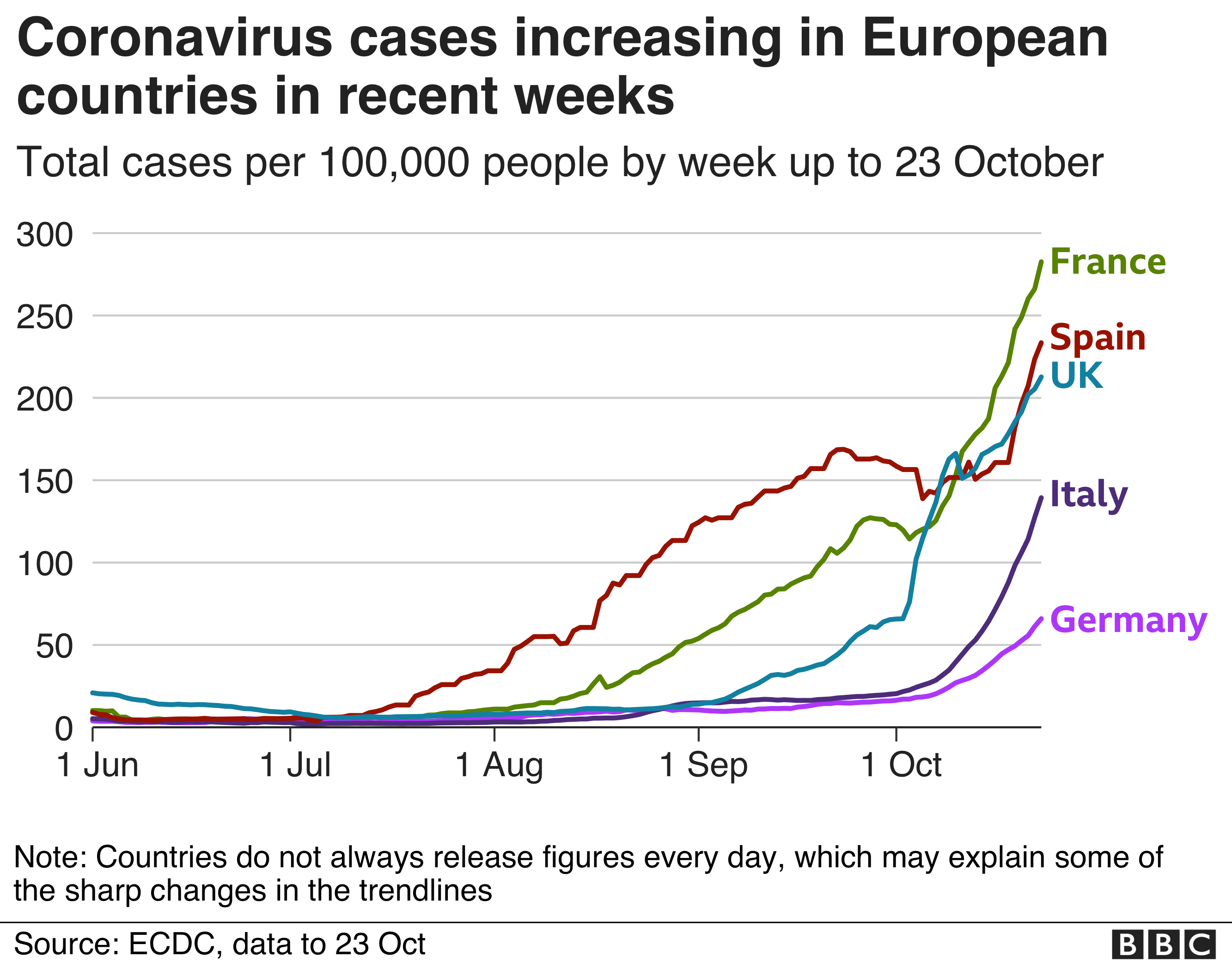sweep_shot
Hall of Famer
- Joined
- Mar 30, 2016
- Runs
- 55,979
Spain reports record rise in coronavirus cases
15,186 new infections confirmed in 1 day, while fatalities rise by 222
OVIEDO, Spain
Spain on Friday broke its all-time record for daily coronavirus cases, with the Health Ministry reporting 15,186 new infections.
The daily infection number rose more than 2,000 compared to the previous Friday, the day of the week when confirmed cases tend to spike in Spain.
The country's total number of infections has now exceeded 936,000.
On Friday, the number of COVID-19 deaths surged by another 222 people, bringing the total number of lives lost in Spain to 33,775.
Over the last week, Spanish authorities have identified more than 1,000 new outbreaks, with social settings continuing to be the main source of infection, leading to a quarter of the newly identified outbreaks.
Yet, with schools now open, educational centers are increasingly fueling the viral spread, causing 13.8% of the most recent outbreaks, while workspaces are responsible for 10.9%.
Despite the measures to shelter nursing homes, 71 new outbreaks were also detected this week in these vulnerable centers, leading to 819 new cases, according to data provided by the Health Ministry.
Another 1,768 COVID-19 patients are currently fighting for the lives in intensive care units, which are using 20% of their capacity to treat COVID-19 in Spain. Nearly 11,800 COVID-19 patients are in less serious condition, but still hospitalized.
Although Spain’s chief epidemiologist said in a news conference Thursday that cases appeared to be “stabilizing”, and could soon begin to drop, the infection rate this week in Spain jumped up considerably.
Last Friday, Spain in total reported 258 infections per 100,000 people over the past 14 days. After seven days, the figure now sits at 280 infections per 100,000.
Source: https://www.aa.com.tr/en/europe/spain-reports-record-rise-in-coronavirus-cases/2009108.






